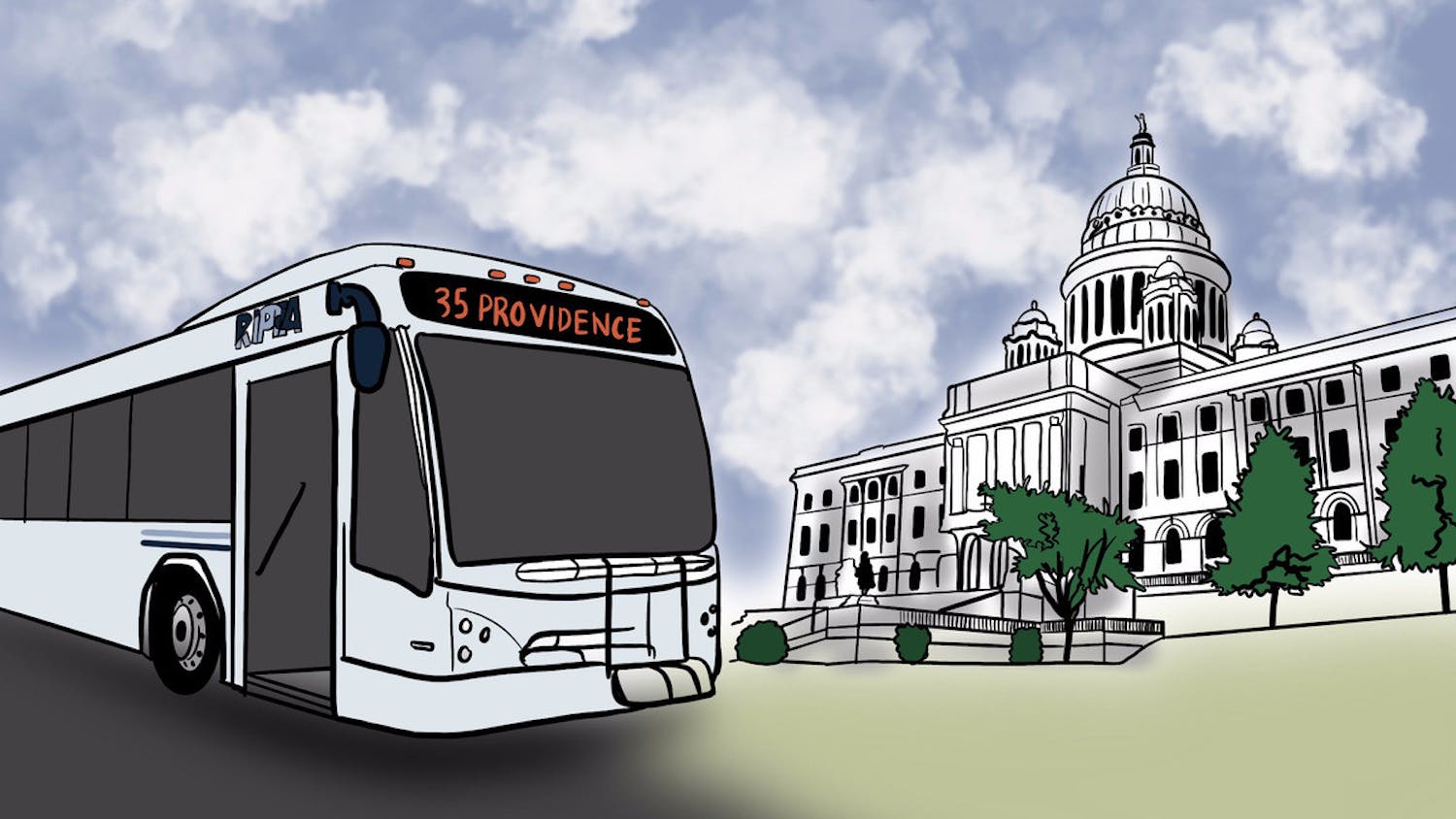A report on race and traffic stops released by the Rhode Island Department of Transportation Wednesday found that “in 24 Rhode Island communities, minorities were more likely to be pulled over than whites for a traffic stop given census population data from 2010.”
The report, compiled by the Institute on Race and Justice at Northeastern University, uses eight additional months of data to expand upon a preliminary report released earlier this year. But “the report does not draw conclusions about the existence of racial profiling in Rhode Island,” according to a RIDOT press release.
The report joins years of discourse on racial profiling in the state, including another report published in September by the Rhode Island American Civil Liberties Union detailing police departments’ non-compliance with Rhode Island’s Racial Profiling Act of 2004.
State law requires local police departments to post on their websites the procedures and forms involved in filing a complaint about police misconduct, which can include racial profiling. Police departments must accept complaints in person, by fax and by mail.
These provisions were included in the law because police departments claimed that they weren’t receiving complaints about racial profiling, said Steven Brown, executive director of the RIACLU. In the past, police departments could use a lack of complaints to justify inaction regarding racial profiling prevention, he added.
“If you really want to get complaints, you should make it easier for people to file them,” he said.
Five police departments — those in Barrington, East Greenwich, Little Compton, New Shoreham and Tiverton — had neither complaint forms nor procedures on their websites as of the end of July 2014, according to the report, which cites additional non-compliance with the law where police departments created barriers to filing complaints, including “intimidating warnings,” “intrusive requests for information” and “notary requirements.”
Brown said the non-compliance with the law is a symptom of police departments’ lack of concern for investigating complaints.
Many “didn’t expect this particular provision in the law to solve a lot of problems,” he said, adding that fears of retaliation and mistrust of the complaint process also make individuals reluctant to report police misconduct.
The Barrington, East Greenwich, Little Compton and Tiverton police departments have posted complaint forms and procedures on their websites since July.
Antone Marion, who was appointed Little Compton police chief several weeks ago, said he immediately rectified this mistake when he received a letter from Hillary Davis, an RIACLU policy associate, explaining the police department’s non-compliance.
“All complaints are taken seriously and investigated thoroughly. It’s not something we take lightly,” he said.
Barrington Police Chief John LaCross fixed the link on his department’s website when he realized it was not working — it was broken at the time of the report, he said.
The broken links to the complaint forms and procedures were a result of switching webmasters, he added.
Vincent Carlone, the New Shoreham police chief, also cited technical difficulties as the reason for the department’s non-compliance.
“I’m not a computer guy, I have to be honest with you,” he said.
“This is a very different kind of place. We don’t pick on anyone,” he said. “I’m very proud of this organization. We treat everyone very nicely. This is a relaxed, friendly place. … It’s like old school. It’s like 30 years ago.”
“If we haven’t had any complaints, it’s because we really don’t bother anyone,” he said. “Sometimes we get left out of the loop because we’re across the ocean, and that’s probably my fault, but we will certainly come into whatever we need to do.”
This year’s report follows a similar report from October 2007, which was prompted by the Urban League of Rhode Island’s attempt to file a misconduct complaint at the Pawtucket police department. Until the time of that report, complainants at the Pawtucket police department were required to sign over the right to “obtain, from any source whatsoever, any and all copies of the complainant’s employment records, medical records, financial records and credit history,” according to the 2007 report.
“The average complainant might well wonder exactly who was being investigated,” the report said.
A movement to pass more comprehensive racial profiling legislation has grown since 2007. A Comprehensive Racial Profiling Prevention Act has been introduced to the General Assembly every year between 2007 and 2013.
The bill includes provisions to bar police officers from requesting identification from passengers at traffic stops and from searching juveniles without reasonable suspicion or probable cause.
Mounting frustration with the inability to pass the bill at the state level has led to efforts to pass a municipal ordinance, Brown said. The Community Safety Act that was introduced to the Providence City Council in June would eliminate searches without probable cause, allow civilians to record suspected police misconduct and require officers to document every stop they make, WPRI reported.
This ordinance proposes the creation of a Community Safety Review Board to enforce the ordinance, require officers to report all traffic and pedestrian stops, bar officers from following or photographing juveniles except as part of a stop or arrest, and limit officers’ ability to use race, physical characteristics, association with identified gang members and place of residence or encounter to justify listing an individual as a gang member, the Providence Journal reported.
The ordinance has been referred to the Committee on Ordinances, according to the City of Providence website.
ADVERTISEMENT




